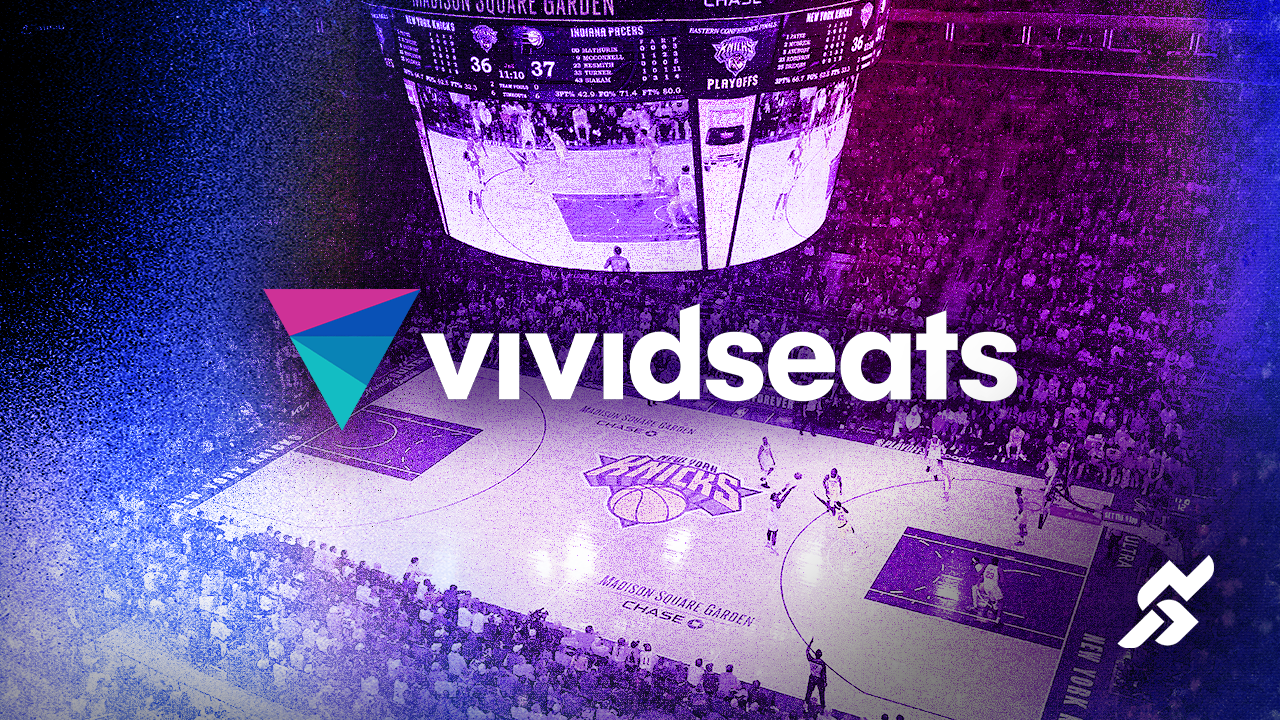

Vivid Seats stock briefly jumped more than 50% in Wednesday day trading, the latest move in what’s been a volatile week for the live event ticketing business. It finished the day up 25.88%.
The company, which counts Los Angeles Dodgers and Chelsea owner Todd Boehly as its largest shareholder, announced on Monday that it would execute a 1-for-20 reverse stock split after close on Tuesday. On Tuesday morning, it dropped 20.3% on second quarter earnings that trailed revenue estimates. Executives spoke at length about challenges facing the business, which had fallen more than 90% off its all-time high.
On Wednesday, following the reverse split, shares at one point had increased by about 58%, and even with an afternoon regression still more than erased their prior day losses. Vivid closed at $25.68 per share.
It’s unclear what’s specifically driving the surge. The market reacted poorly to the earnings release, and the reverse split is largely a cosmetic maneuver, one that could help the stock stave off delisting. Vivid closed Tuesday at $1.32 per share, and Nasdaq’s delisting threshold is $1. The company has been reported as a potential acquisition target in the past year, and there could be short covering in the mix on Wednesday as well.
“We believe the reverse stock split will, among other things, enhance the marketability of our common stock,” CFO Lawrence Fey told analysts on Tuesday.

Vivid’s business is particularly notable for those in sports. As Sportico has written before, the company’s performance and its quarterly numbers provide insight into consumer spending for live events of all sorts. In 2024, sports accounted for 31% of Vivid marketplace revenue. Concerts were the largest segment at 43%.
On Tuesday’s calls with analysts, Vivid executives discussed what CEO Stanley Chia called a “near-term operating challenge,” attributing year-over-year declines in part to economic uncertainty and to a new FTC rule that mandates ticket marketplaces display all-in pricing up front. That new rule took effect about three months ago on the eve of the NFL’s schedule release, a pivotal week for sports ticket sales.
“The sports category was particularly weak and down double-digits in Q2,” Chia said, “with underwhelming [NBA and NHL] playoff matchups, challenging comps and NFL schedule release occurring just two days after the all-in pricing rollout.”
Asked more specifically about the sports declines, Fey said the FIFA Club World Cup this year drove significantly less volume than the 2024 Copa América, and that the NBA Finals matchup between the Oklahoma City Thunder and Indiana Pacers, two smaller market teams, trailed that of the Boston Celtics vs. Dallas Mavericks in 2024. He also said that last year, “Caitlin Clark fever was at its peak,” so WNBA numbers are also down year over year.
As part of its Q2 earnings release, Vivid Seats also announced a cost-reduction plan that is targeting $25 million in savings in annual operating expenses.
“The program will include a right-sizing of the current headcount, along with a re-assessment of investments in order to manage the business through near-term growth pressures,” Raymond James analysts said Tuesday in a research note. “While helpful in its own right, it is more a response to challenging industry dynamics, demonstrating that Vivid can only do so much when turbulence hits the broader live events industry.”
Vivid Seats went public via a Boehly-backed special purpose acquisition company in 2021 at $10 a share. After peaking at $14.35 in late 2021, it had lost nearly 93% of that value prior to the reverse split. Boehly’s Eldridge Industries is by far the group’s largest shareholder. Emeth Value Capital is second.
Vivid is one of 40 publicly traded company in Sportico’s Sports Stock Index, and is the index’s worst performing stock this year. That index is up 8.9% on the year, roughly in line with the broader S&P 500.
(This story has been updated with end-of-day stock price information.)
